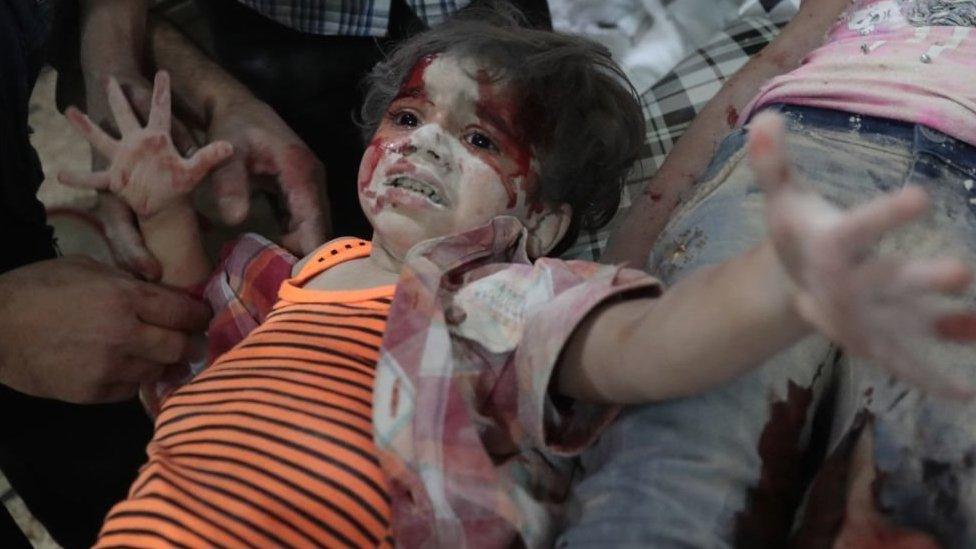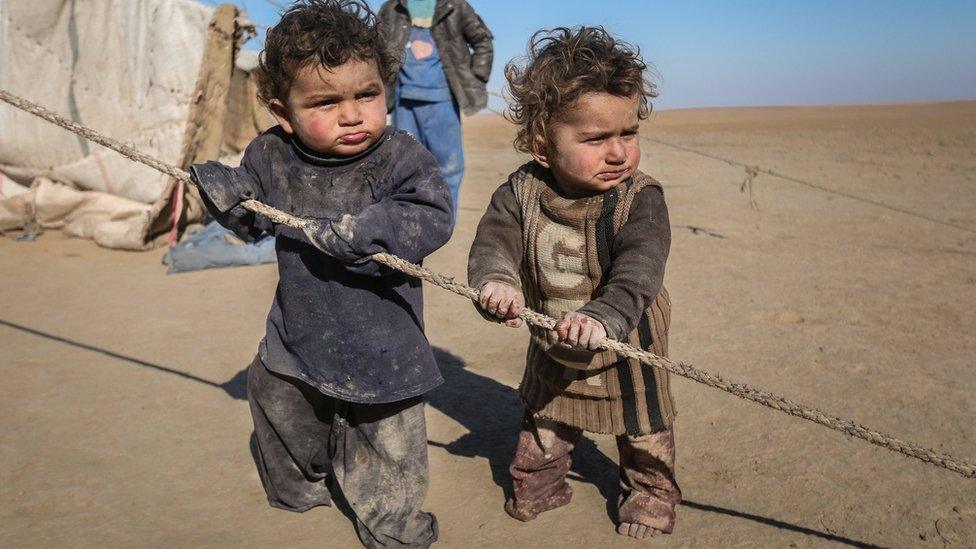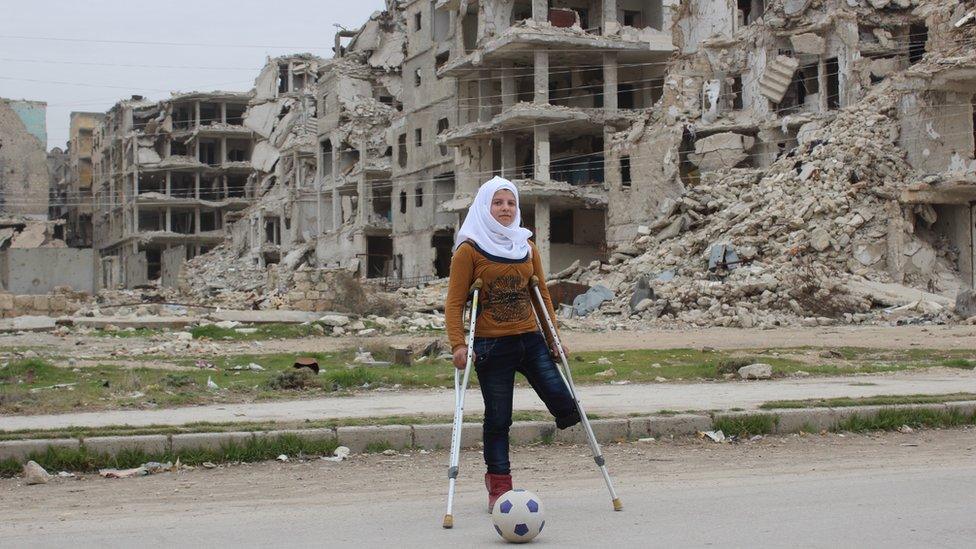Syria war: 2016 deadliest year yet for children, says Unicef
- Published

More children died in 2016 than in any other of the previous five years of civil war
Syria's children "hit rock bottom" in 2016, with more killed than in any other year of the civil war, the United Nations children's organisation says.
At least 652 children died - 255 of them in or near a school - last year, a 20% jump from the number killed during 2015, Unicef said, external.
The figure includes only formally verified deaths, meaning the number could be far higher.
Unicef believes more than 850 children were recruited to fight in 2016.
The number is double that of 2015, the report states. Those recruited increasingly found themselves on the frontline or, in extreme cases, used as executioners, suicide bombers or prison guards.
"The depth of suffering is unprecedented," said Geert Cappelaere, Unicef regional director for the Middle East and North Africa speaking from Homs, Syria.
"Millions of children in Syria come under attack on a daily basis, their lives turned upside down."
Six years ago this week, the first protests against Bashar al-Assad's rule began in Syria. The protests led to a violent crackdown and then civil war.
On Monday, the UK-based monitoring group, the Syrian Observatory for Human Rights, said the death toll from the conflict had topped 320,000.
Syrian kids explain the war

Some six million children are relying on humanitarian aid after six years of war
The first protests were held to demand the release of teenage students held, then tortured, for writing anti-government graffiti.
Since then, the toll on children has only increased, aid agencies say.
Mr Cappelaere added: "Each and every child is scarred for life with horrific consequences on their health, well-being, and future."
Last week, Save the Children warned millions of Syrian children could be living in a state of "toxic stress", which the charity feared may become irreversible without immediate help.
It also found two-thirds of children had either lost a loved one, had their house bombed or shelled, or been injured as a result of the war.

Saja's story

Saja was only seven when the war in Syria started in 2011. Now 13, she has known war for almost half her life, and has moved home five times because of fighting.
Three years after the conflict started, she lost her brother and her four best friends in a bomb attack in Aleppo, and also lost her leg.
Before her injury, she was a keen gymnast. But she says balancing with only one leg is now too difficult - instead, she hopes to continue her dream of being a professional gymnastics coach, and to work in the Olympics.
Source: Unicef